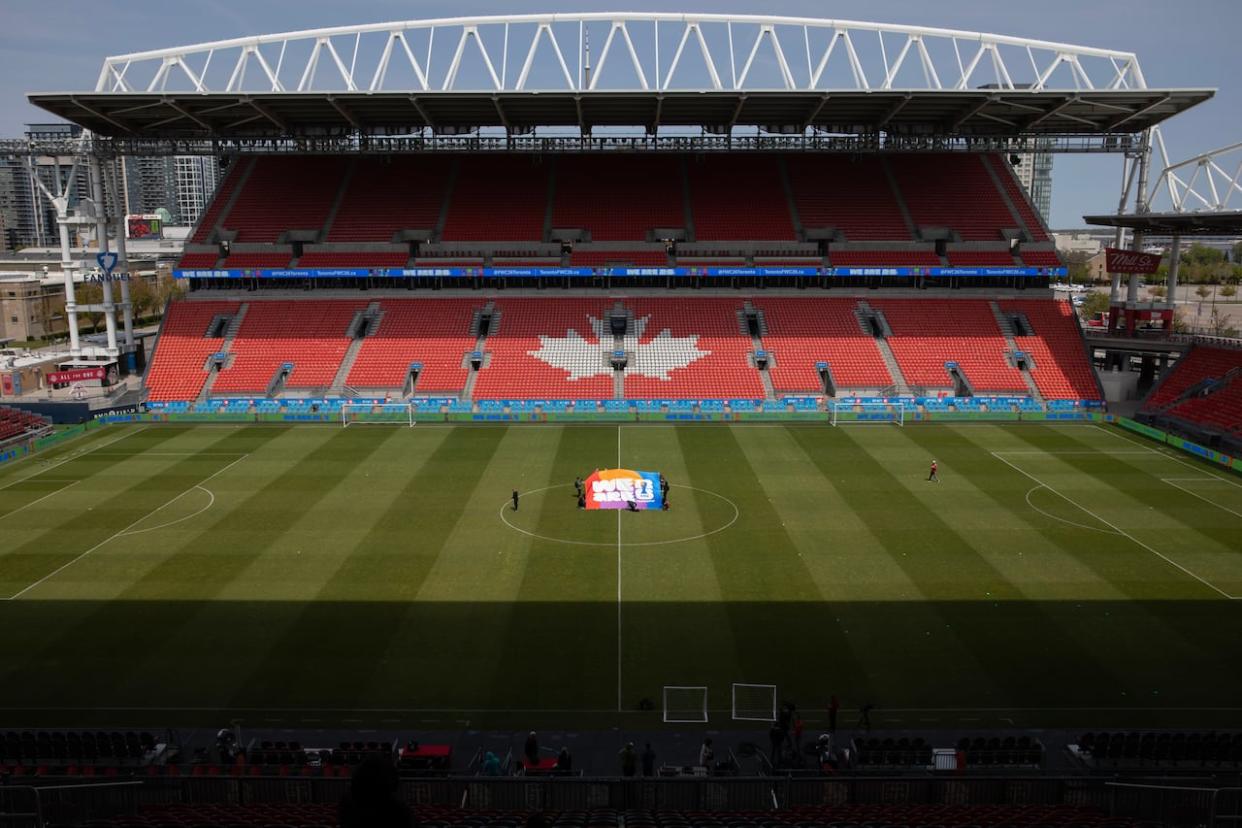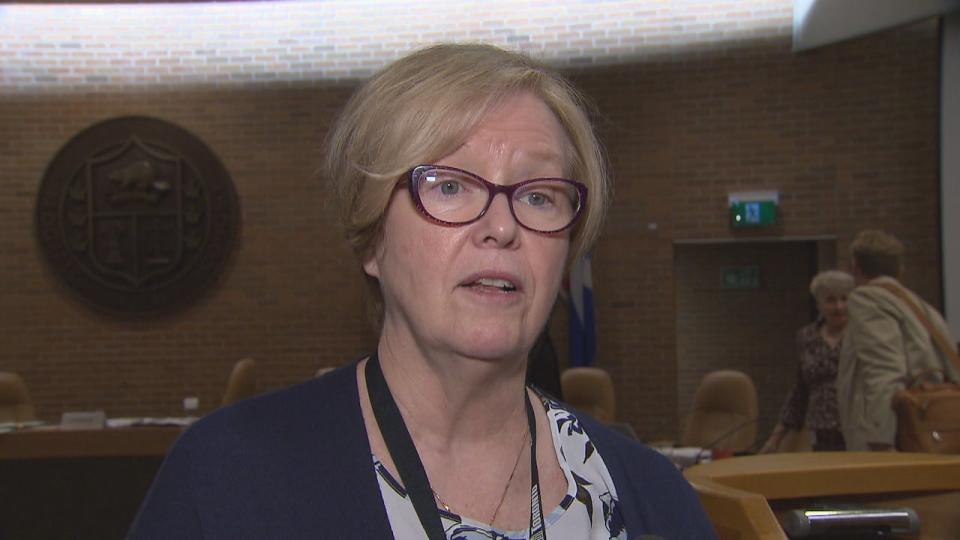Hosting FIFA World Cup estimated to cost Toronto nearly $380M, new report finds

The cost of hosting one of the biggest sports tournaments in the world in Toronto is now projected to be nearly $80 million more than initially thought, according to a new city report.
Toronto and Vancouver are the Canadian cities set to host matches during the 2026 World Cup, which will also be played across the United States and Mexico. While the city has previously said the economic boost as a result of the matches will rake in a significant amount of money, cost projections are continuing to rise.
When Toronto first pitched the games in 2018, a city report estimated the cost at between $30 million and $45 million. Later in 2022, those cost projections would balloon to about $300 million.
But in a report released Monday, city staff now estimate the hit to taxpayers will run about $380 million, linking the cost increase to Toronto being awarded a sixth group stage match, instead of the five initially predicted — as well as an evaluation of vendor quotes, safety and security requirements and "inflationary uncertainty."
The city expects to see an economic boost of roughly $392 million in GDP for Toronto — about $1 million less than previous projections — and an additional $456 million for Ontario, according to the report. That will amount to tax revenues totalling nearly $119 million for Toronto and roughly $139 million for the province. The economic activity figures are based off of hosting five games, the report notes, and could continue to change.
City staff have been reviewing planning assumptions, cost estimates, revenue and benefit opportunities after FIFA announced this month that Toronto had been awarded seven matches, including six group stage matches and one knockout stage contest.
"Toronto's hosting of the FWC26 will bring positive economic and cultural benefits for the city, particularly in the tourism, hospitality, and entertainment sectors," the report said.
"City staff are actively assessing and managing all costs, including identifying opportunities for cost mitigation."
Cost escalation 'manageable': city budget chief
City Budget Chief Shelley Carroll defended the cost escalation Monday, saying that the rise is "manageable" and the economic return will be much more valuable for the city in job and economic growth.
"The report that we're receiving is somewhat to be expected because we went from five games to six games which is great news for soccer fans but there's a cost associated with that," Carroll said.
"The economic benefit is the real piece here, and people always have to remember [that] there's an almost unquantifiable benefit to just putting on one of these events and putting the city on a world stage."
When it comes to mitigating costs, Carroll said these reports allow the city to be "more accountable and more transparent," in addition to counting pennies in the planning process.

Toronto Budget Chief Shelley Carroll said while the total cost projections associated with hosting six World Cup matches have risen to nearly $380 million, the figures are still 'manageable.' (Greg Bruce/CBC)
The latest figures come two weeks after the cash-strapped city passed its 2024 budget, which included an operating budget of $17.1 billion and a 2024-2033 capital budget and plan of $49.8 billion.
"City staff are confident in this budget and will continue to exercise due diligence... seeking lower-cost alternatives and options for cost containment and leveraging strategies to maximize revenue opportunities," staff said in a statement to CBC News Monday.
Toronto Mayor Olivia Chow said much of the rise in cost projections is a result of inflation, adding that she is confident the city will find ways to offset some of the costs that fall onto Toronto.
"I made sure that amount is reflected in the budget because it wasn't before," Chow told reporters in Ottawa Monday. "It is important that we are transparent, that we are realistic, and [in 2022], no one anticipated the rate of inflation of today.
"I want to find ways to lower costs for the residents of Toronto because hosting these games [is] really expensive," said Chow, adding that she is open to increasing the hotel tax which rose by two per cent in the city's 2023 budget, before she became mayor.
"We'll do what we can to reduce the costs. We'll do what we can to bring in other sources of revenue, whether it's through sponsorships, through commercial rights, through federal [or] provincial governments, private donations."
Current deal not in favour of taxpayers, says councillor
Coun. Josh Matlow, who represents Ward 12, Toronto-St. Paul's, said the current deal is not in favour of taxpayers. He's calling for other levels of government to cover costs that will fall on Toronto, adding that provincial and federal governments are "not contributing their fair share.
"Ultimately, if this continues the way the agreement is allowing for, the economic impact for Toronto is not going to be worth the money that Torontonians are going to be putting into it," Matlow told CBC News Monday.
"The deal that was signed is really bad for Toronto. We have so many unmet priorities and at the same time we're spending more, we're getting less."
Earlier this month, Ontario announced its commitment to giving Toronto up to $97 million for the city's FIFA World Cup hosting duties, as long as the federal government matches its contribution.
"We have to make it really clear and we have to use whatever leverage we have remaining that this isn't good enough for Toronto," Matlow said.
While the price tag has gone up, Coun. Mike Colle, who represents Ward 8, Eglinton-Lawrence, said the help from other levels of government will be worth the investment the city is making.
Colle said the matches will be an "incredible investment" for Toronto in the long run, adding that it will spur job growth and ultimately place the city on the map.
"There's a cost to it and it's unfortunate that it's gone up but I think it's a positive contribution to this city. We're putting this city on a world map and we have so much to showcase," he said.
The report will be taken up by the city's executive committee Thursday, before heading to city council for consideration on March 20.


